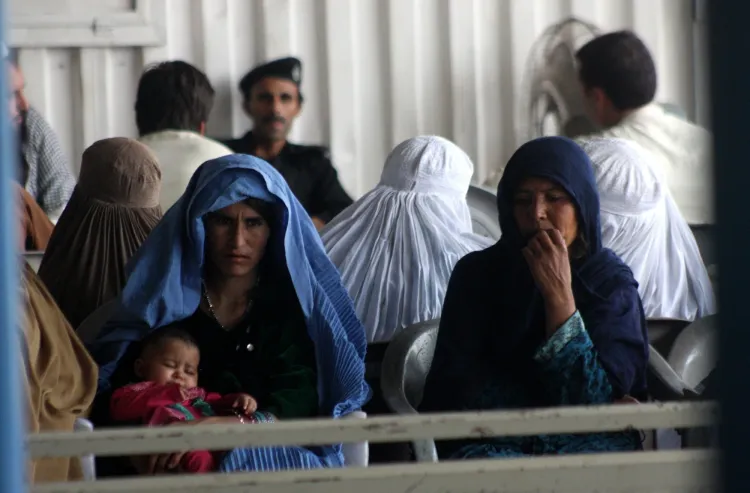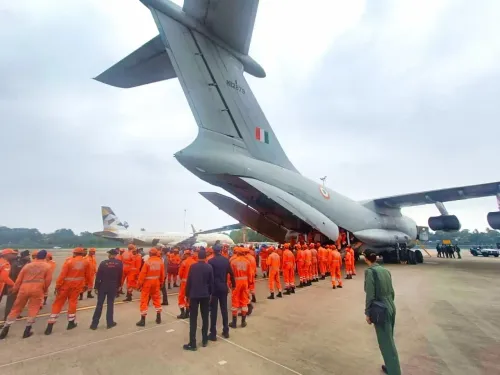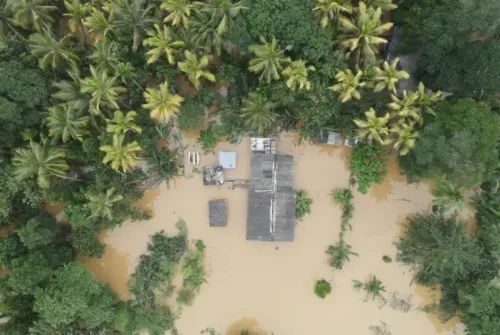Are Afghan Refugees Facing Increased Police Harassment in Pakistan?

Synopsis
Key Takeaways
- Increased police presence targeting Afghan refugees.
- Growing fears of deportation among displaced families.
- Urgent appeals for humanitarian support from authorities.
- Reports of escalating violence at the border.
- Calls for dialogue between Afghan and Pakistani officials.
Kabul, Oct 15 (NationPress) Afghan refugees in Pakistan are reporting an alarming increase in police harassment, arrests, and evictions following intensified border conflicts between the two countries, instilling fear and uncertainty among numerous displaced families.
These refugees voiced their worries after a recent wave of clashes and airstrikes.
Rahimullah, a former Afghan army officer residing in Rawalpindi with his family, shared with Radio Azadi that life has become increasingly challenging since the border skirmishes began. He mentioned that Pakistani police have cautioned property owners against renting to Afghans lacking valid visas, as reported by Afghanistan's prominent news agency Khaama Press.
“Last night, my landlord asked me to leave because we don’t possess visas,” Rahimullah stated. “Police patrols have surged, and landlords are forcing out Afghans everywhere.”
Social media videos, allegedly from Quetta, depict Pakistani police using trucks to apprehend Afghan migrants. Residents in Hazara Town reported that police are conducting door-to-door searches, scrutinizing shops and homes while arresting individuals without proper documentation.
Tayeba Hussaini, a Quetta local, described the situation as “worse than what is portrayed online.” She indicated that authorities have blocked roads, apprehending anyone suspected of being an undocumented Afghan, as Khaama Press cited Radio Azadi.
Afghan refugees have appealed to both Pakistani authorities and the United Nations to alleviate the pressure and extend their visas. Many fear deportation or detention without valid documents.
The crackdown on Afghan refugees follows clashes at the border and Pakistani airstrikes in Paktita and Kabul provinces. Pakistani officials have threatened legal actions against Afghan refugees found residing illegally in the country.
Pakistani Defence Minister Khawaja Asif remarked that the “situation in Afghanistan has changed” and emphasized that Afghan refugees’ presence in the country “must come to an end.” Last week, the Pakistani government announced the closure of 10 Afghan refugee camps and mandated the transfer of their assets to state control.
Meanwhile, Kabul has consistently rejected requests from Pakistani ministers and military leaders to visit Afghanistan.
Earlier this week, Tolo News reported that Pakistan's Defence Minister Khawaja Muhammad Asif, intelligence head Asim Malik, and two other Army Generals each submitted visa requests to travel to Afghanistan, all of which were declined.
On Wednesday, the Taliban reported that at least 12 individuals were killed, and over 100 others were injured in a Pakistani military strike on the Spin Boldak district in southern Kandahar province. In a statement shared on X, Taliban spokesperson Zabihullah Mujahid claimed that Pakistani forces launched an attack in the border district early in the morning using both light and heavy weaponry.
“Unfortunately, this morning, Pakistani forces once again initiated attacks with light and heavy weapons on Afghanistan in the Spin Boldak district of Kandahar, resulting in more than 12 civilian casualties and over 100 injuries. Consequently, Afghan forces were compelled to retaliate,” Mujahid posted on X.
“In our counter-operations, multiple Pakistani aggressor soldiers were killed, their posts and centers were seized, weapons and tanks were captured by Afghan forces, and a significant number of their military installations were destroyed. However, the mujahideen, with unwavering morale, are prepared to defend their homeland, sanctuaries, and people,” he added.










